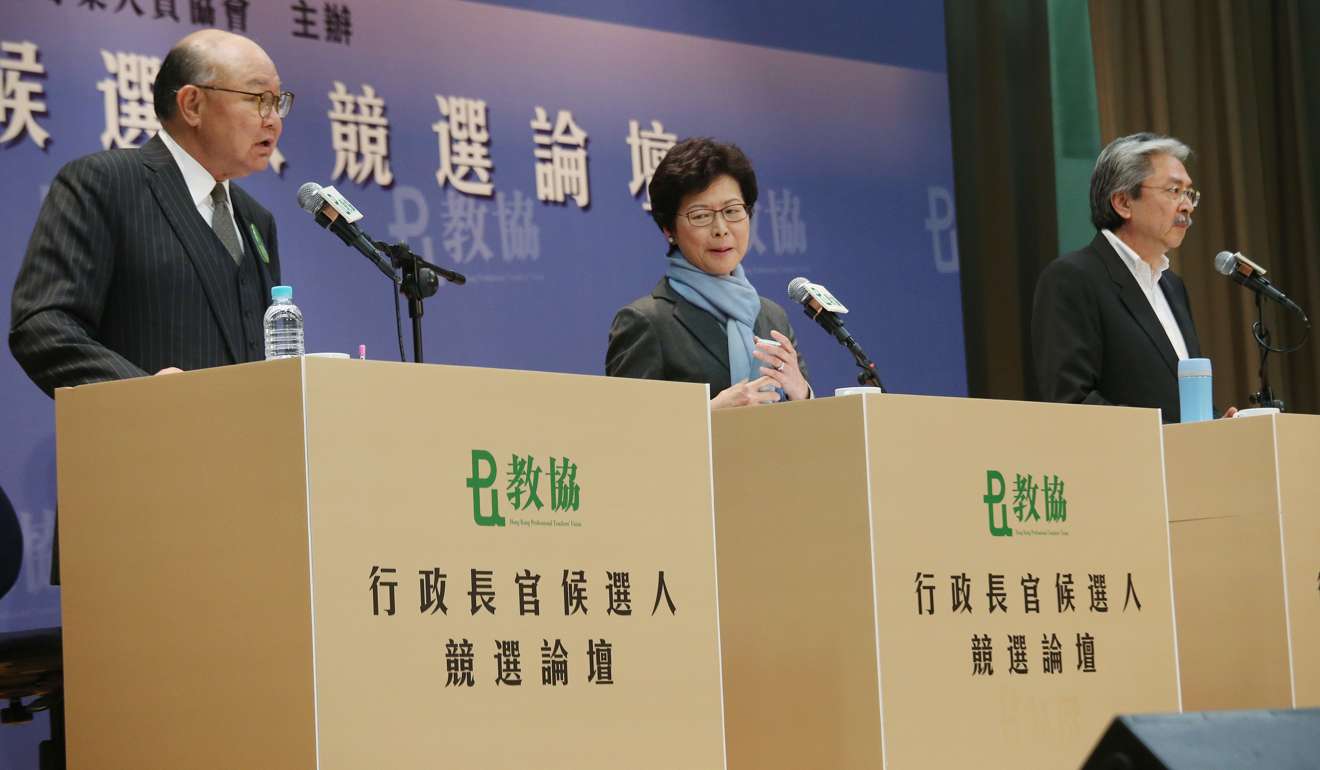
AS EXPECTED: HONG KONG’S ELECTION

Hong Kong’s 1,200-member Election Committee elects a new chief executive on Sunday, with Beijing-favourite Carrie Lam expected to win.
The vote takes place during the twentieth anniversary year of Hong Kong’s independence from Britain. Back then it was agreed that the city’s leader would be chosen by “universal suffrage”, a promise that Beijing affirmed in 2007. It reneged in the intervening years, proposing a system that would be democratic in name only. Ensuing protests buffeted Hong Kong in 2015, spawning a fiery pro-democracy movement that managed to snatch a quarter of the current Election Committee’s seats.
Yet the electoral body is still stuffed with pro-Beijing members, so only the two pro-mainland candidates have any chance of winning. John Tsang – the popular favourite – is therefore unlikely to edge out Ms Lam.
A win by Carrie Lam would spark anger at Chinese meddling; a win by Tsang might prompt even more direct interference by Beijing (which must approve the election’s results). Whoever wins on Sunday will face the same challenges as their predecessor: reconciling mainland demands for more control with the population’s desire for more freedoms.
Enjoying this content? Get it delivered to your phone each morning!
BETWEEN THE FUTURE AND THE PAST: BULGARIA VOTES

Socialist and Russia-friendly Kornelia Ninova is set to mount a strong challenge for Bulgaria’s prime ministership on Sunday.
The economy has been central to the campaign, with Bulgaria carrying the unenviable title of the poorest EU member-state…and its most corrupt. Brussels estimates some 20% of the country’s GDP is squirrelled away by unscrupulous politicians and administrators – something Ms Ninova has vowed to change. The socialist has branded her opponent, Boyko Borisov – a former PM who’s led Bulgaria for the better part of eight years – “a thief” for being complicit in the looting of state coffers, a charge the former PM denies.
Ninova has also called for the warming of ties with Russia, insisting that, although Bulgaria is a NATO member, the pursuit of strong ties with Moscow is in the “national interest”.
She may be right. The Kremlin has repeatedly outlined plans to run huge natural gas pipelines through Bulgaria, giving the poor Balkan state a geopolitical power not seen for centuries. For this reason, the socialists say they’ll oppose the extension of EU sanctions against Russia, a message that’s been well received among older voters who hanker for an idealised past.
UNITED AGAINST CORRUPTION? PROTESTS IN BRAZIL

Brazil has been rocked by a series of seemingly never-ending scandals in recent years, the latest of which involves the meat packing sector.
The probe into the industry, which, among other things, revealed that rotten meat was being declared fit for consumption, has dealt a heavy blow to exports. The EU, China and South Korea all imposed a temporary freeze on imports from the South American giant last week, causing the value of meat exports to decline from $63,000,000 to $74,000 in just one day. This is a substantial blow for Brazil; the sale of beef, pork and poultry accounts for 15% of all exports and has been one of the few sectors that has thrived despite a deep recession over the past two years.
The scandal will taint the reputation of Brazil’s meat industry, which employs about 6 million people both at home and abroad. Because of this, public anger is increasingly turning against the judiciary and the federal police who launched the investigation.
Brazilians will take to the streets on Sunday to voice their anger at widespread corruption. Whether their voices will be heard is another question entirely.
HAPPENING ELSEWHERE…
The smallest German state – Saarland, in the country’s west – will vote in local elections. Angela Merkel’s conservative CDU has governed the state for the past 18 years; a loss now, just months out from the all-important national election, would be bad news for the centre-right.

